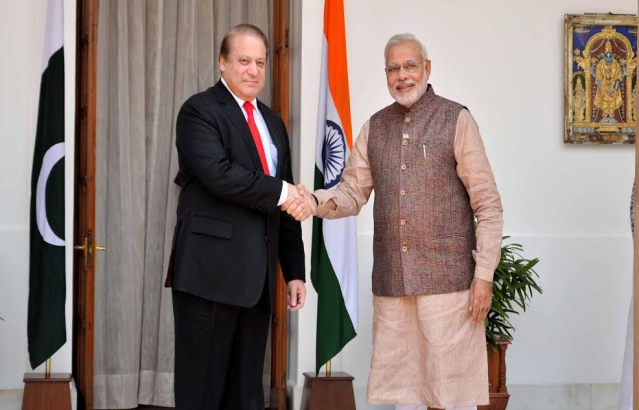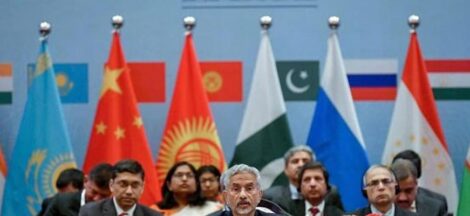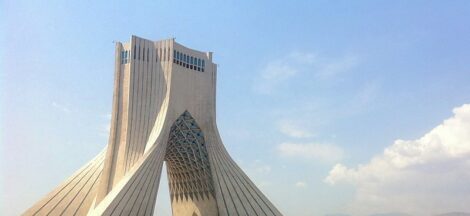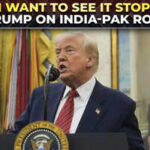Pakistan’s Punjab Information Minister Azma Bukhari has claimed that the military operation against India was planned under the guidance of former prime minister Nawaz Sharif. The statement has sparked controversy, highlighting the intricate political and military dynamics within Pakistan’s ruling party, the Pakistan Muslim League-Nawaz , and raising questions about the involvement of political leadership in military decisions.
On Wednesday, Bukhari, a senior leader of the PML-N, told the media that the military operation against India, which involved a series of cross-border drone and missile strikes, had been strategically designed under Nawaz Sharif’s supervision. Bukhari’s comments came after both Pakistan and India agreed to a ceasefire on Saturday, following four days of intense military engagement that escalated tensions between the two nuclear-armed neighbours. The agreement to end hostilities was reached after diplomatic discussions between both countries’ civil and military leaderships.
Nawaz Sharif, the elder brother of current Prime Minister Shehbaz Sharif, has long been a dominant figure in Pakistan’s political scene. Having served as prime minister three times, he remains a crucial force within the PML-N. His leadership and influence within the party are well known, although his involvement in military affairs has often been the subject of speculation. Bukhari’s remarks suggest a closer connection between Nawaz Sharif and the military’s strategic decisions than has been publicly acknowledged.
In the wake of the ceasefire announcement, Nawaz Sharif took to social media to congratulate both Pakistan’s civilian and military leadership for their handling of the conflict. His message emphasized the importance of unity and coordination in addressing the crisis. However, the assertion that the operation was designed under his supervision raises questions about the extent of his influence over military matters.
Political observers in Pakistan have been quick to analyse Bukhari’s statement, noting the complex relationship between civilian and military leadership in the country. Pakistan’s military has historically wielded considerable power, often playing a central role in foreign and defence policy. This has led to tensions between civilian governments and the military, with political leaders sometimes claiming that military operations are initiated without their direct involvement or approval.
Bukhari’s comments could be seen as an attempt to further solidify Nawaz Sharif’s standing within the party by emphasising his leadership role in the national security framework. They also serve to underscore the significant role the PML-N president plays in shaping Pakistan’s foreign policy. However, the claim is likely to invite criticism from opposition parties and analysts who question the appropriateness of a former prime minister’s involvement in military operations, especially given Pakistan’s history of military coups and political instability.
The operation itself, which took place along the Line of Control between Pakistan and India, involved a series of drone strikes and missile launches. The attacks were initially described by both sides as retaliatory measures, with each accusing the other of violating territorial sovereignty. The military confrontation marked one of the most intense periods of cross-border violence in years, drawing international concern and calls for restraint from global powers.
The ceasefire brokered between Pakistan and India on Saturday effectively halted the violence, though it has not resolved the underlying tensions between the two countries. Diplomatic channels remain open, with both sides pledging to engage in further discussions to prevent future escalations. However, the events over the past week have left many questioning whether the brief exchange of hostilities is a sign of an evolving strategic relationship or if deeper issues remain unresolved.
Bukhari’s statement regarding Nawaz Sharif’s involvement in the military operation further complicates the political landscape within Pakistan. While Sharif’s supporters have long viewed him as a stabilising figure, critics argue that his leadership has often been marked by controversy, especially regarding his interactions with the military establishment. The relationship between the civilian government and Pakistan’s military has been tense at times, and Nawaz Sharif’s alleged role in military operations could reignite debates about civilian control over military matters.
As of now, there is little clarity on the specifics of Nawaz Sharif’s involvement in the operation, and many questions remain unanswered. Political figures within the PML-N have generally remained silent on the details of the military operation, with some expressing support for Bukhari’s comments while others have refrained from offering public commentary. This ambiguity suggests that the full extent of Nawaz Sharif’s influence in this latest episode of military action may be more complex than is immediately apparent.




 Pakistan’s Military Leadership Faces Scrutiny: Op Sindoor Fallout
Pakistan’s Military Leadership Faces Scrutiny: Op Sindoor Fallout 